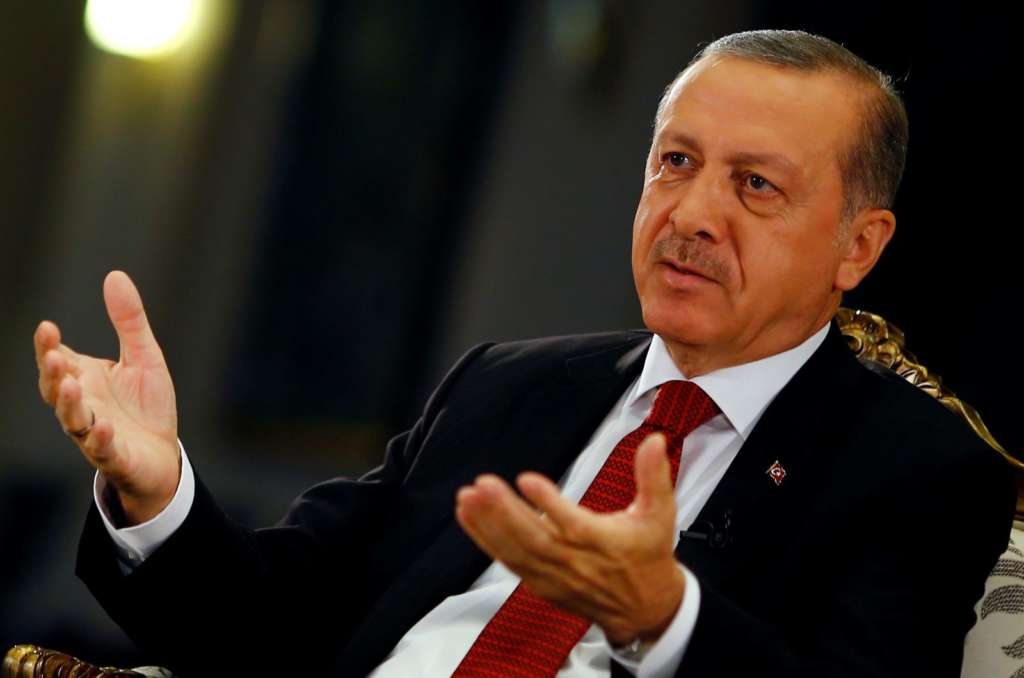Ankara-The Turkish government has approved a step to draft a new constitution in the wake of the recent failed coup.
Turkish Prime Minister Binali Yildrim said that political parties had found enough common ground to draft a new constitution.
In a press conference held on Monday following a Cabinet session presided by Turkish President Recep Tayyip Erdogan, the prime minister said that there was a possibility to introduce some minor constitutional changes with the agreement of the other political parties.
“All the main parties are ready to start working on a new constitution,” Yildirim told reporters in Ankara.
Yildrim had declared upon his nomination as prime minister in May that his government’s first priorities were focused on the implementation of constitutional reforms and the adoption of the presidential system instead of the current parliamentary system.
Erdogan has been seeking to implement a new constitution that would replace the one that was adopted in 1981 following a military coup. He is also calling for widening the president’s authority, as the current constitution gives more powers to the government.
Meanwhile, the U.S. Embassy in Ankara said on Tuesday the State Department has authorized the voluntary departure of employees’ family members in Turkey after a failed military coup, Reuters agency reported.
Turkey’s declaration of a state of emergency also prompted the State Department to change the status, the Embassy said in an e-mailed security message to Americans resident in Turkey.
“During this period, U.S. citizens in Turkey may see an increase in police or military activities and restrictions on movement,” it said.
In the meantime, the Turkish prime minister said that a two-hour-long meeting was held at the presidential office in Ankara in the presence of Republican People’s Party (CHP) head Kemal Kiliçdaroglu and Nationalist Movement Party (MHP) head Devlet Bahçeli.
Yildrim described the meeting as “historic and productive,” stressing that all participants were in consensus over the July 15 coup attempt. He added that there was a consensus over the need to draft a new constitution with the participation of all political parties.
Yildrim noted that the other party represented in parliament, the Peoples’ Democratic Party (HDP), could also join the process, although its leaders were not invited to the meeting at the presidency.
Last March, former Prime Minister Ahmet Davutoglu announced the formation of a committee that would be in charge of drafting a new constitution. He added that the draft-law would be later submitted to Parliament.
For his part, Vice Prime Minister Numan Kurtulmus said that the current constitution was “military and undemocratic.”
Yasin Aktay, the spokesman of the ruling Justice and Development Party (AKP), said that the failed coup was not only targeted at Turkey but was aimed at hampering the revival of the Islamic world.
In comments on Monday, Aktay said that Turkey would be a safe country not only for Turks, but for the entire nation. He added that the country would remain the refuge for the oppressed, adding that the three million Syrian refugees currently living in Turkey were regarded as equal to Turkish nationals.
Meanwhile, the Turkish foreign affairs parliamentary committee said that “Fethullah Gulen’s organization” was similar to ISIS.
In a letter addressed to the international community, the foreign affairs committee said that the group was convinced that it could “rule the world,” adding that it was present in around 100 locations and countries around the world.
The Turkish committee also said that the organization had 700 schools inside Turkey and 2,000 other schools in other countries, adding that students were receiving religious ideological teachings at a very young age.
